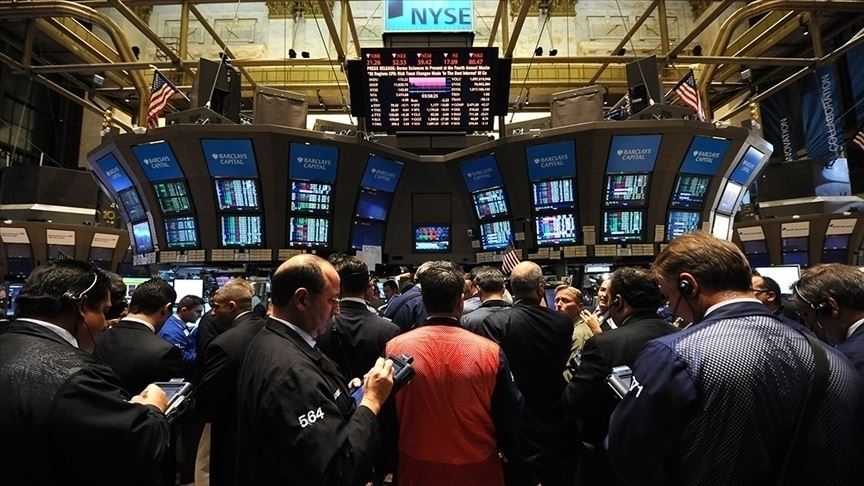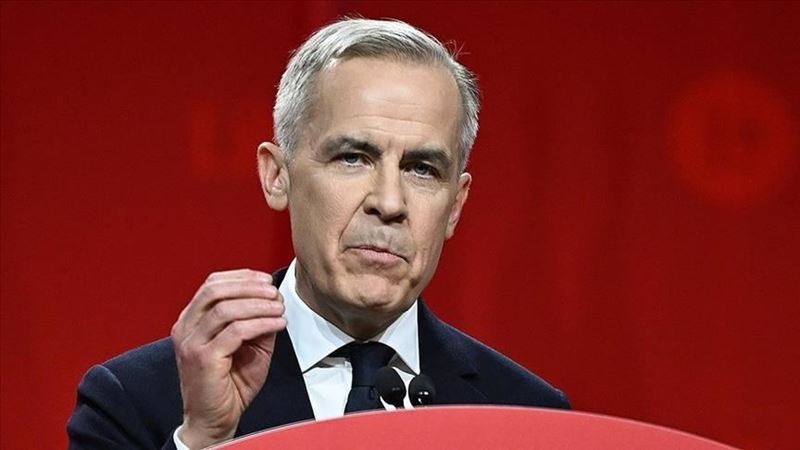While the central banks' aggressive interest rate hikes continued with the expectation of increasing inflationary pressures on a global scale, the central banks of England, Norway, Switzerland, Taiwan, South Africa, Indonesia and the Philippines increased their policy rates yesterday after the Fed.
The Bank of Japan (BoJ), on the other hand, has not changed its ultra-loose monetary policy, unlike its peers, and has become the only central bank in the world to apply negative interest rates.
While the continuation of the aggressive rate hike process brought about the deepening of recession concerns, sales in the developed country bond markets accelerated.
With these developments, the selling trend continued in the New York stock market yesterday and the Dow Jones index fell 0.35 percent, the S&P 500 index 0.84 percent and the Nasdaq index 1.37 percent. The US 10-year bond yield was 3.72 percent, the highest level since February 2011. The dollar index stabilized at 111.4 after testing a 20-year high of 111.8. Index futures contracts in the USA started the new day with a decrease as well.
On the European side, the Bank of England (BoE) raised the policy rate by 50 basis points to 2.25%, the highest level in the last 14 years, yesterday. Following the Bank's decision to increase interest rates for the 7th time in a row, the sterling/dollar parity reached its lowest level in 37 years with 1.1212. While the Swiss National Bank ended the 8-year-long negative interest rate by increasing the policy rate by 75 basis points yesterday, the Swiss franc depreciated by more than 1 percent against the dollar. Announcing its interest rate decision on the same day, the Norwegian Central Bank increased the policy rate by 50 basis points to 2.25% in line with the expectations.
After the decisions, the 10-year bond yield saw the peak of 14 years in England, while it reached the highest level in 3 months in Switzerland. Germany's 10-year bond yield also tested 2 percent for the first time since September 2013.
After these developments, the expectations that the European Central Bank (ECB) would increase the policy rate by 75 basis points at its October meeting and raise it above 3 percent at the end of the year began to be priced in.
Expectations that the high interest rate period in Europe will continue in the future increased the recession concerns in the region, which is currently struggling with the energy crisis and where inflationary pressures persist. With these concerns, the Stoxx 600 index saw its lowest level since February 2021 yesterday, while the DAX 40 index in Germany decreased by 1.84 percent and the CAC 40 index in France decreased by 1.87 percent, closing the worst in 2.5 months. The FTSE 100 index in the UK also closed at a 20-day low with a loss of 1.08 percent. After falling to 0.9809 yesterday, the lowest level since October 2002, the euro/dollar parity was stabilized at 0.9830 today, while index futures contracts in Europe started the new day with a decrease.
In Asia, the BOJ did not change its interest rate and ultra-loose monetary policy, which was at minus 0.1 percent yesterday. After the meeting, BoJ Chairman Haruhiko Kuroda emphasized that they are not considering raising interest rates for now and that they will continue with strong monetary easing, and the dollar/yen parity fell rapidly to 146, the lowest level of the last 24 years. After this development, the country intervened in the foreign exchange market for the first time after June 1998.
Dollar/yen parity declined by close to 4 percent after yesterday's intervention and stabilized at 142 levels.
With these developments, Shanghai composite index in China and Kospi index in South Korea lost value by 0.6 percent and 1.7 percent, close to the closing. In Japan, there were no transactions in the markets due to the public holiday.
In the domestic market, the Central Bank of the Republic of Turkey (CBRT) cut the policy rate by 100 basis points to 12 percent, while the text of the decision pointed out the importance of being supportive in financial conditions at a time when uncertainties regarding global growth and geopolitical risks increased.
Despite the declining risk appetite on a global scale, Borsa Istanbul followed a receptive course, and the BIST 100 index diverged positively from the rest of the world and closed the day with an increase of 1.53 percent at 3,295.27 points. Dollar/TL is traded at 18,3520 at the opening of the interbank market today, after seeing its peak at 18,4032 yesterday.
Analysts said that the expectation that central banks will continue to increase interest rates in the face of increasing inflationary pressures and recession concerns deepened, and that this situation caused the risk appetite in the markets to remain low.
Stating that Fed Chairman Powell will make the opening speech and the "Fed Listens" event, which will be held with the theme of "Transition to the economy after the epidemic", will be followed, analysts stated that the manufacturing industry and service sector PMI data to be announced in the USA and Europe will be followed on the data agenda.
Analysts stated that technically, 3,200 points in the BIST 100 index are in the support position, and the levels of 3,300 and 3,370 are in the resistance position.
The data to be followed in the markets today are as follows:
10.00 Turkey, September financial services confidence index
10.30 Germany, September service sector and manufacturing industry PMI
11.00 Eurozone, September services and manufacturing PMI
11.30 UK, September services and manufacturing PMI
16.45 US, September services and manufacturing PMI
21.00 USA, Fed Chairman Powell's speech









Comments
No comment yet.